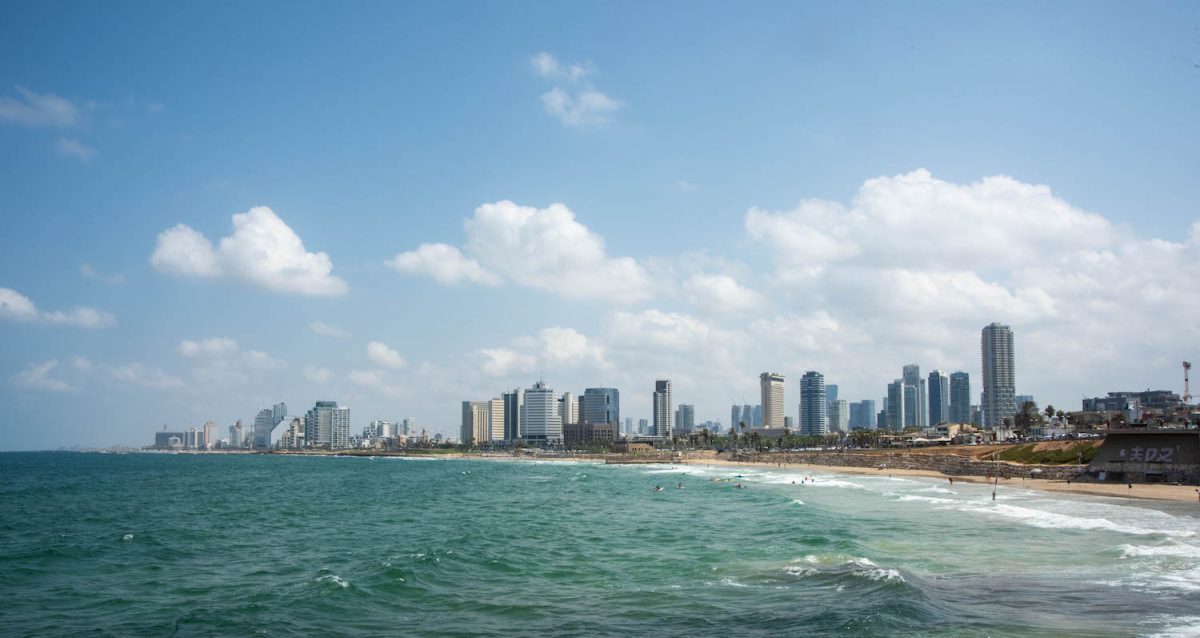Students who were studying abroad at NYU Tel Aviv will complete the rest of the semester online due to safety concerns in the region over the Israel-Hamas war. The university said it is “fully prepared for students to return” to campus for the spring 2024 semester, but is still in the process of making a decision.
NYU said it will use the U.S. Department of State’s guidance regarding international travel to decide whether students will be returning to Tel Aviv next semester, according to Associate Vice Chancellor for Global Programs & Mobility Services Josh Taylor. University leadership, the Department of Campus Safety and the Office of Global Programs will also influence the decision, according to Taylor. Students are currently studying remotely from home, the university’s Washington Square campus or its Abu Dhabi campus.
“We are working closely with students who are hoping to study in Tel Aviv next semester,” Taylor wrote to WSN. “If ultimately we need to delay our resumption of in-person operations there due to safety concerns, we will work with them to either defer their enrollment to a future semester or, if they prefer, to find an alternative location to enroll for spring.”
NYU Tel Aviv students and faculty took a pre-planned trip to the university’s Abu Dhabi campus just a day after the Palestinian militant group Hamas’ violent assault on nearby Israeli towns, killing more than 1,400 civilians and taking around 200 hostages into the Gaza Strip. In response to the attack, the Israeli military launched airstrikes into Gaza and placed a total blockade on the region, killing over 8,000 Palestinians so far, according to the Gaza Health Ministry.
Students who have returned to Manhattan are staying in Hayden Hall, Alumni Hall and Greenwich Hall. Félix Romier, a senior in the Tel Aviv program currently staying in Manhattan, said he enjoyed his time at NYU Tel Aviv and is excited to continue his classes remotely. He also said he did not feel comfortable sharing his experiences at the program in light of tensions around the conflict on campus.
“I’m concerned to be honest, especially because I’m going to be living on campus, very near to Washington Square Park,” Romier said. “I don’t really want to engage with any of it because I don’t know to what extent that these people would be willing to have a conversation with me.”
The university has released several statements since the beginning of the war, some of which discussed student safety at its Tel Aviv program and reactions to the conflict on campus. Students and faculty took part in multiple pro-Palestinian and pro-Israeli demonstrations at Washington Square Park and Bobst Library, with some protesters demanding that NYU cut ties with its study abroad program in Israel.
In the past, students have said NYU’s Tel Aviv study away site violates the university’s Code of Ethical Conduct and Non-Discrimination and Anti-Harassment Policy because of an Israeli law prohibiting foreigners who have called for a boycott of the country from entering its borders. The university has repeatedly stood by its program, saying that shutting it down would violate academic freedom.
“Despite recent calls from some to close the site because it is in Israel, NYU of course remains firmly committed to NYU Tel Aviv, and such calls violate the principles of academic freedom and the free exchange of ideas,” Taylor wrote. “It is safe to say that those principles are more important now than ever.”
Collin Byun, a senior in the Tel Aviv program, is now studying at NYU’s Abu Dhabi campus but said he would participate in the program again.
“Knowing everything that was going to happen, I would still do it again,” Byun said in an interview with WSN. “I got a great education there and a very comprehensive education on the conflict. I’m going to look back on this time in my life and understand that this is a really core experience.”
Pieper Grantham contributed reporting.
Contact Elle Liu at [email protected].























































































































































